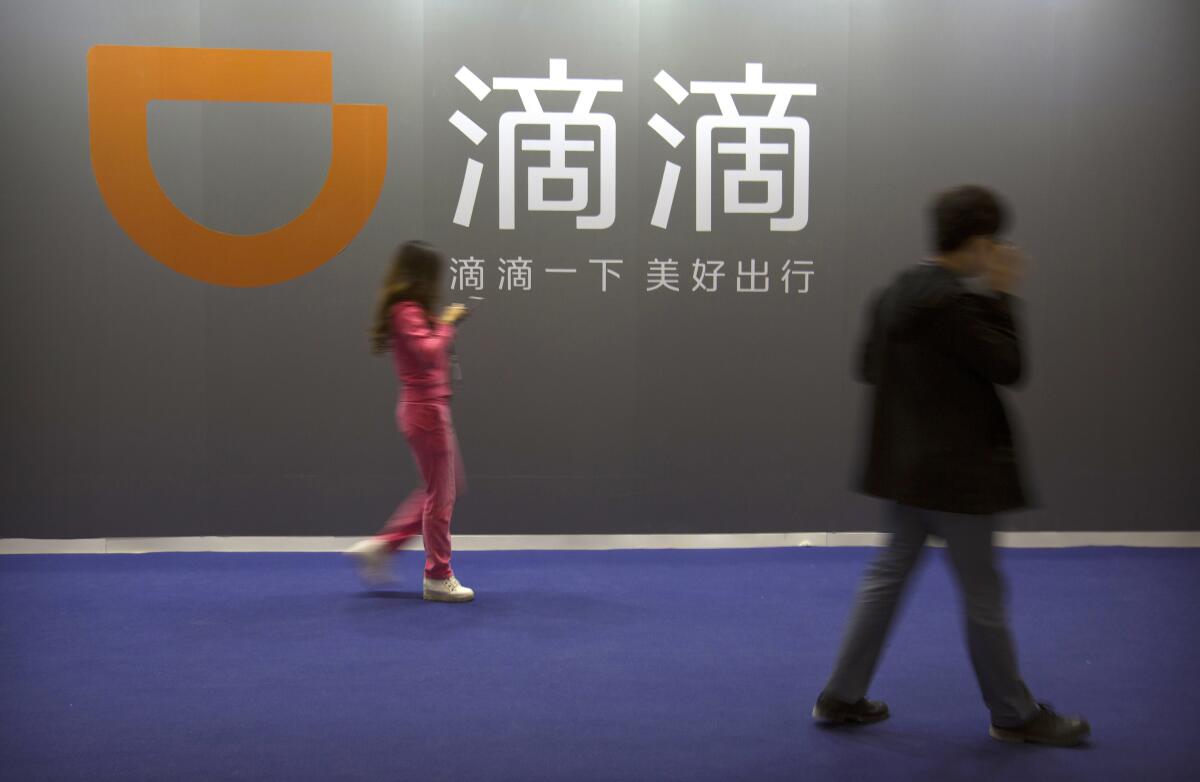Chinese ride service Didi told to take app off online stores

- Share via
BEIJING — Ride-hailing service Didi Global Inc., which made its U.S. stock market debut last week, was ordered Sunday by Chinese regulators to remove its app from online stores while the company overhauls its handling of customer data.
Dozens of social media and e-commerce companies have been told to handle customer information more carefully as the Communist Party tightens control over their influential industries. Some have been told to collect less information.
An investigation found “serious violations” in how Didi collected and used personal information, the Cyberspace Administration of China announced. A statement said the company was told to “rectify problems” but gave no details.
Didi said it would “strictly comply” but gave no details. A statement on its social media account said customers who downloaded the Didi app before Sunday’s order can keep using it normally.
What does this Fourth of July mean to Californians? Freedom and independence take on a different meaning after over a year of the COVID-19 crisis.
Didi shares fell 5.3% on Friday after the Cyberspace Administration of China announced an investigation. The agency said Didi was barred from accepting new customers until the investigation was completed.
Didi raised $4 billion from investors in its New York stock offering.
The company was founded in 2012 as a taxi-hailing app and has expanded into other ride-hailing options, including private cars and buses. It says it also is investing in electric cars, artificial intelligence and other technology development.
The ruling party began tightening control over China’s fast-changing internet industries last year, launching anti-monopoly and other investigations.
Chinese leaders are concerned about the influence of e-commerce, social media and other companies that pervade the lives of China’s public. Most are privately operated.
In April, Alibaba Group, the world’s biggest e-commerce platform, was fined $2.8 billion on charges of violating anti-monopoly rules. Other companies have been penalized on charges they violated rules on privacy, censorship and disclosure of acquisitions.
More to Read
Sign up for Essential California
The most important California stories and recommendations in your inbox every morning.
You may occasionally receive promotional content from the Los Angeles Times.











